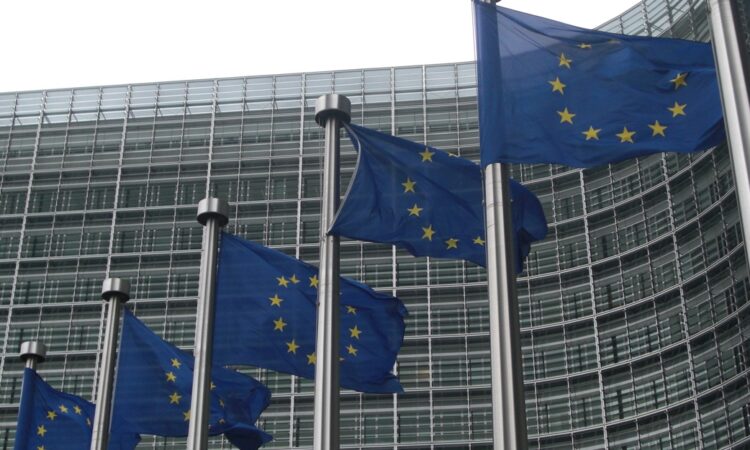
The Council of the European Union adopted on June 29 restrictive measures targeting the Belarusian economy, in view of the regime’s involvement in Russia’s illegal, unprovoked and unjustified war of aggression against Ukraine, a statement by the Council of the EU said.
“These comprehensive measures aim at mirroring several of the restrictive measures already in place against Russia, and thereby address the issue of circumvention stemming from the high degree of integration existing between the Russian and Belarusian economies,” the statement said.
The measures agreed will affect various sectors of the Belarusian economy, it said.
The Council is extending the export ban on dual-use/advanced goods and technologies, as well as introducing further export restrictions on goods which could contribute to the enhancement of Belarusian industrial capacities.
Further restrictions are also introduced on exports to Belarus of maritime navigation goods and technologies, and luxury goods.
Regarding imports, it will be prohibited to import directly or indirectly, purchase or transfer namely of gold and diamonds from Belarus, as well as helium, coal and mineral products including crude oil.
The latter measure will be complemented by a new export ban on goods and technologies suitable for use in oil refining and the liquefaction of natural gas.
The Council is prohibiting the provision of certain services to Belarus, its government, public bodies, corporations or agencies and to any natural or legal person acting on behalf or at their direction.
These include accounting services, auditing services, including statutory audit, bookkeeping services, tax consulting services, business and management consulting services, and public relations services.
The Council is broadening the prohibition on the transport of goods by road within the territory of the EU, by trailers and semi-trailers registered in Belarus, including when hauled by trucks registered outside Belarus.
In order to minimise the risk of circumvention, EU operators which are owned for 25 per cent or more by a Belarusian natural or legal person, should be prohibited from becoming a road transport undertaking or from transporting goods by road in the Union, including in transit.
The June 29 decision requires that EU exporters insert in their future contract the so-called ‘no-Belarus clause’, through which they contractually prohibit the re-exportation to Belarus or re-exportation for use in Belarus of sensitive goods and technology, battlefield goods, firearms and ammunition.
In order to minimise the risk of circumvention, the EU will prohibit the transit via the territory of Belarus of dual-use goods and technologies, goods and technologies which might contribute to Belarus’s military and technological enhancement or to the development of its defence and security sector, goods which could contribute to the enhancement of Belarusian industrial capacities, goods and technologies for use in the aviation or space industry, as well as arms exported from the EU.
In addition, in order to help counter the re-exportation of battlefield goods found in Ukraine or critical to the development of Russian military systems, it was decided that EU operators selling such battlefield goods to third countries will need to implement due diligence mechanisms capable of identifying and assessing risks of re-exportation to Russia and mitigating them.
EU parent companies will be required to undertake their best efforts to ensure that their third-country subsidiaries do not take part in any activities resulting in an outcome that the sanctions seek to prevent.
The package also includes measures to allow EU operators to claim compensation from damages caused by Belarusian individuals and companies due to sanctions implementation and expropriation, provided that the member state national or company concerned does not have effective access to remedies, for example under the relevant bilateral investment treaty.
The relevant legal acts will be published in the Official Journal of the EU on June 30, the statement said.
The Council decided on June 28 to impose restrictive measures against two individuals and four entities responsible for actions undermining or threatening the territorial integrity, sovereignty and independence of Ukraine.
The Council is listing Dmitry Beloglazov, and his company LLC Titul. Dimitry Beloglazov is responsible for setting up a complex circumvention scheme together with Oleg Deripaska, who is already subject to EU restrictive measures.
His company LLC Titul created a subsidiary called Joint Stock Company Iliadis to acquire Oleg Deripaska’s share in the International LLC Rasperia Trading Limited. Rasperia owns 28.5 million euro shares in another European company, STRABAG SE, the assets of which have been frozen as a result of EU restrictive measures.
Through this mechanism, Deripaska managed to sell his Rasperia frozen assets, and received an equivalent economic benefit. In view of this circumvention scheme, JSC Iliadis and Rasperia were also sanctioned by the Council.
The June 28 listings also include PJSC TransContainer and its General Director Mikhail Kontserev. PJSC TransContainer is a Russian transportation company and Russia’s largest railway container operator.
Its revenues increased throughout 2023 also thanks to the flow of Belarusian cargoes, and the company’s participation in illegal weapon trade schemes with North Korea in support of the Russian government.
Altogether, EU restrictive measures in respect of actions undermining or threatening the territorial integrity, sovereignty and independence of Ukraine now apply to over 2200 individuals and entities.
Those designated on June 28 are subject to an asset freeze and EU citizens and companies are forbidden from making funds available to them. Natural persons are additionally subject to a travel ban, which prevents them from entering or transiting through EU territories.
(Photo: Sébastien Bertrand)
Please support The Sofia Globe’s independent journalism by becoming a subscriber to our page on Patreon:






